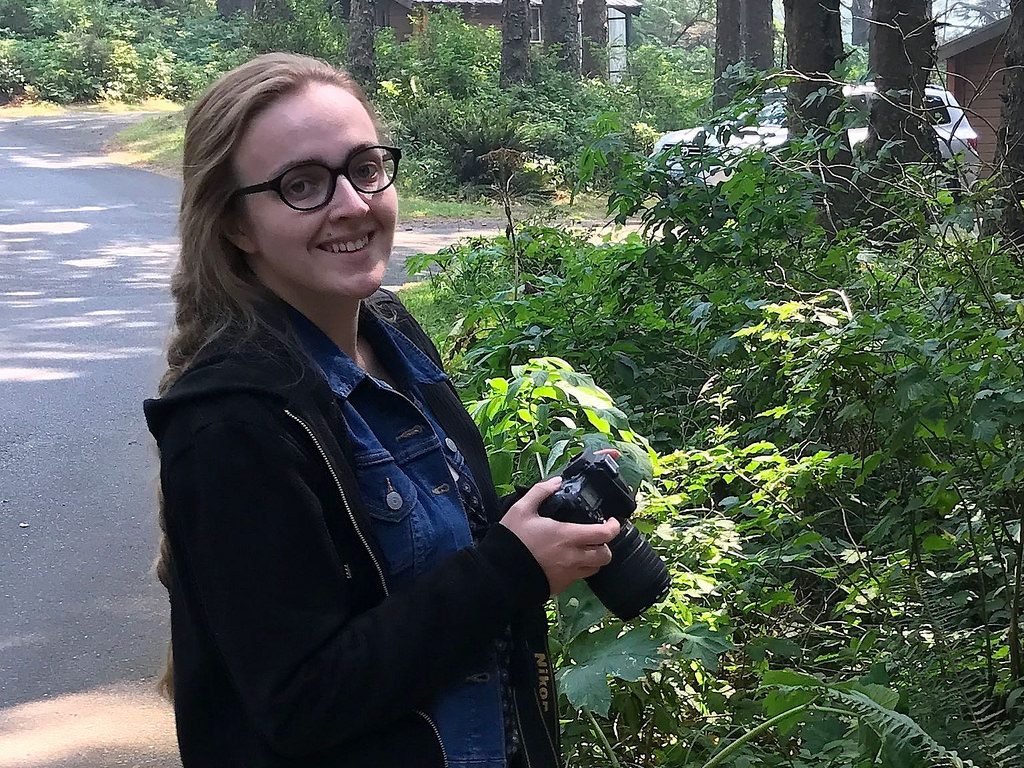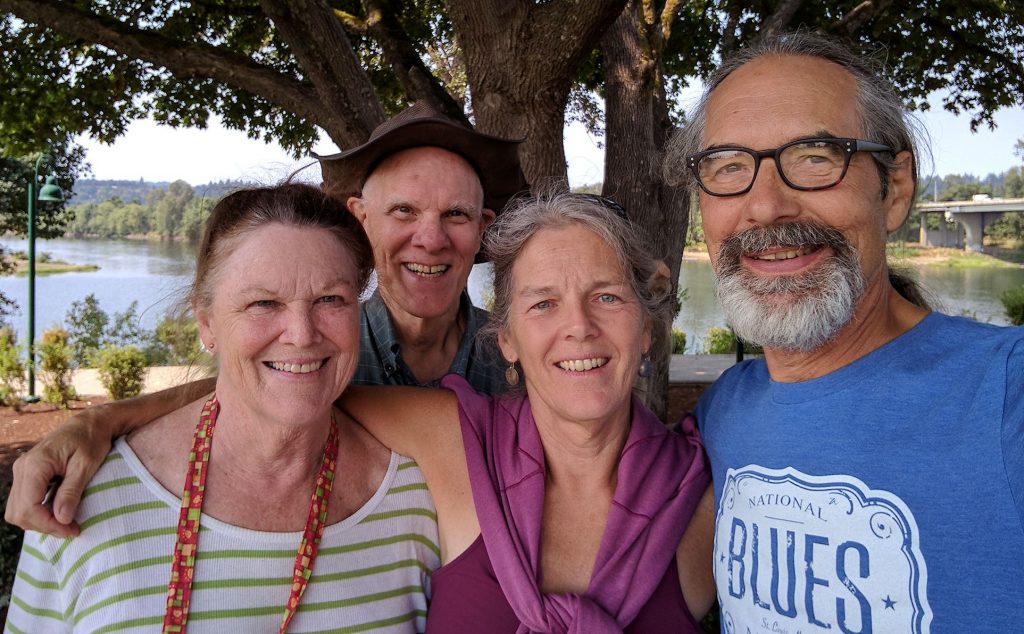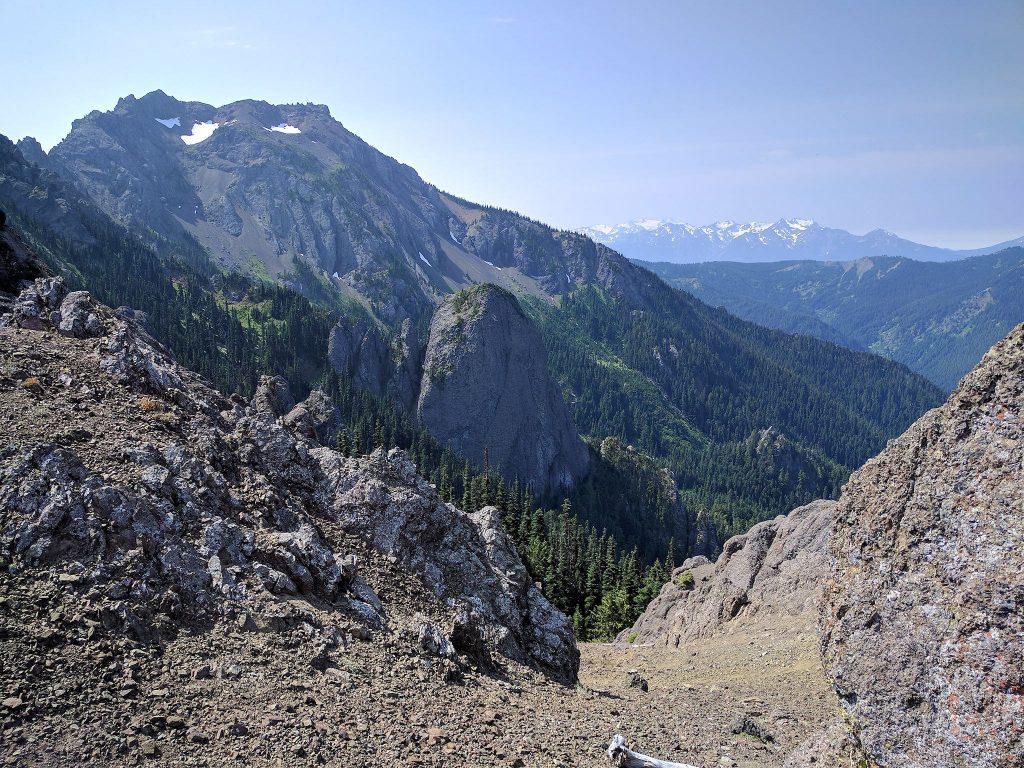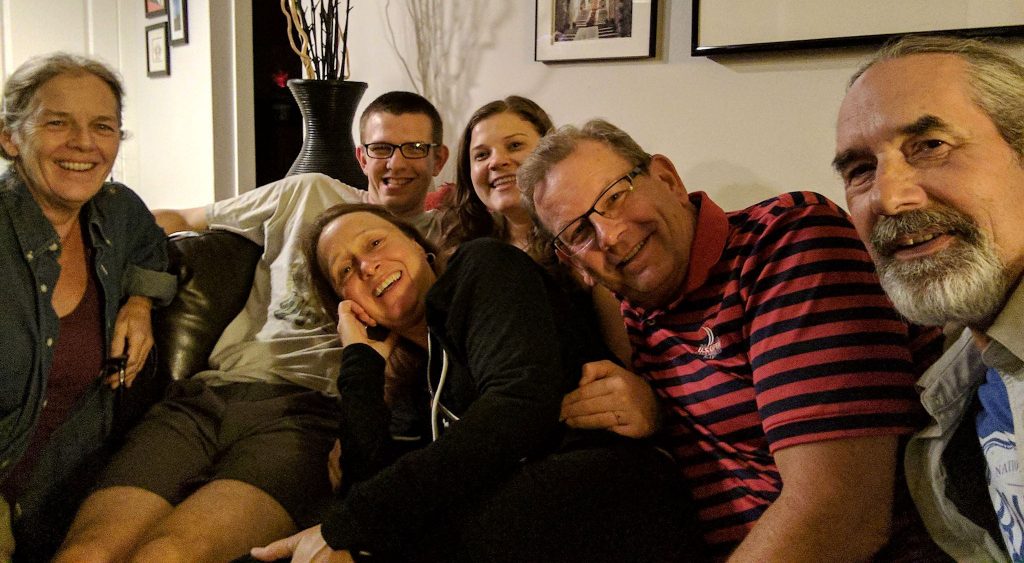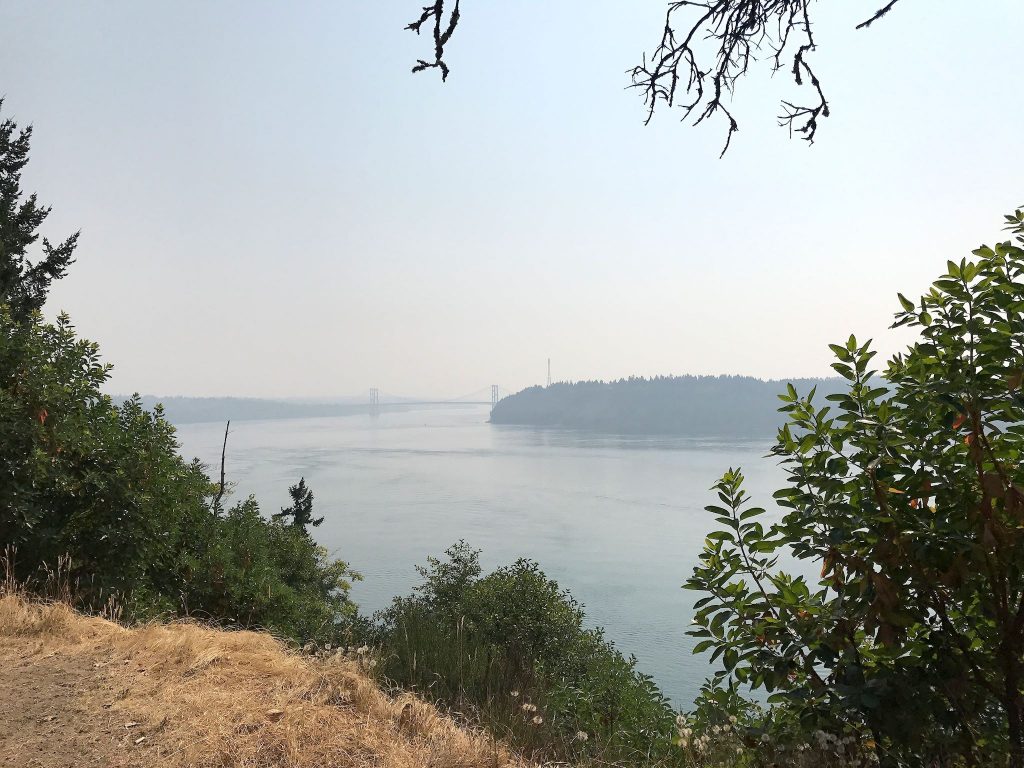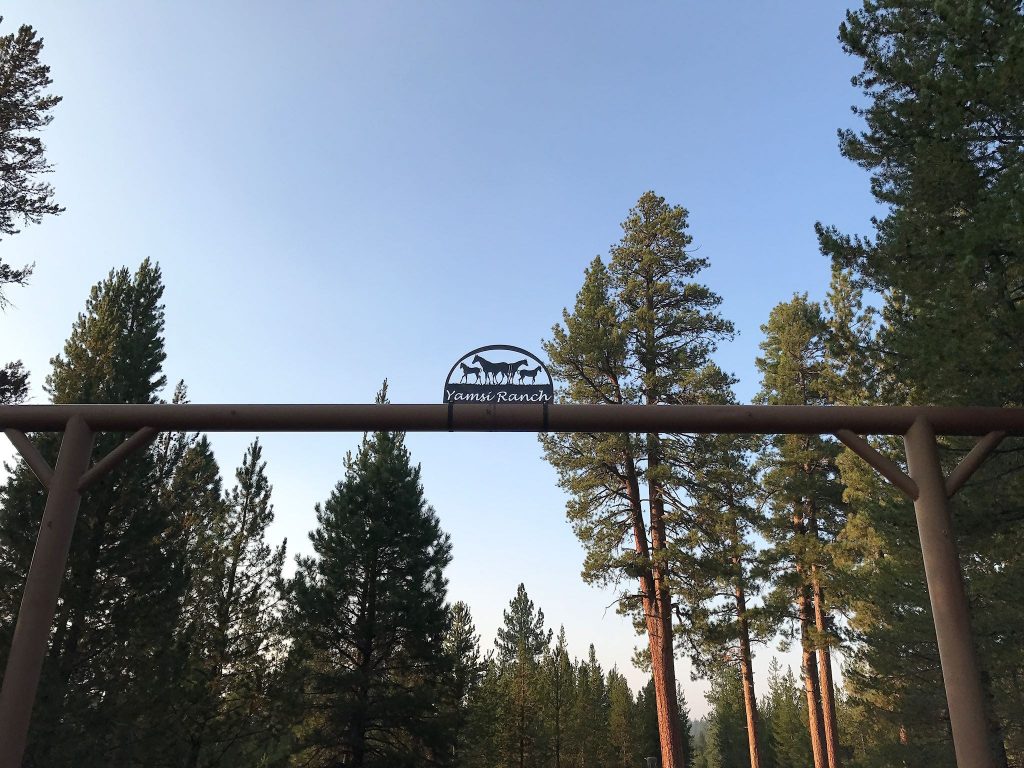 My mother’s sister Gerda lives on a cattle ranch in southern Oregon, and has done so for close to all of her adult life. The ranch has been her family home since my uncle Hawk took it over from his uncle Buck and my aunt has been running the place with her family for decades. She is an honored cattlewoman and has been a strong matriarch of the family and the family business.
My mother’s sister Gerda lives on a cattle ranch in southern Oregon, and has done so for close to all of her adult life. The ranch has been her family home since my uncle Hawk took it over from his uncle Buck and my aunt has been running the place with her family for decades. She is an honored cattlewoman and has been a strong matriarch of the family and the family business.
Guest on board!
We’re honored to have our niece Monique join us on the road. She flew into Portland and climbed into the RV, launching a week-long, roughly circular tour through and around the western half of Oregon. We’re planning to hit a few select sights, introduce her to these nomadic ways, and spend some quality chill time together. More to come…
Salem – an opportunistic rendezvous
Portland – Patty’s Eclipse Porch Party
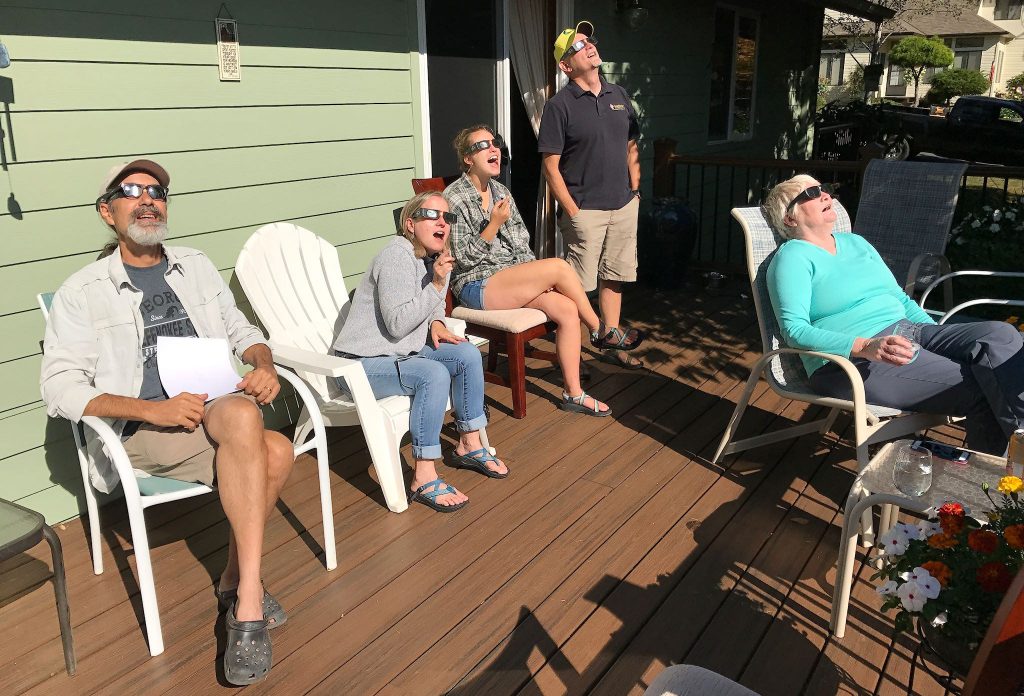
Patty and I graduated from St Anselm College together. We stayed connected through mountain biking, skiing and hiking adventures for about 7 years after graduation as we settled into and unsettled our careers (as recovering nurses) and moved around the northeast. And although we’ve stayed in touch since Patty moved to Seattle in 1989, and later to Portland, we hadn’t connected live. Time to change that. It was just a coincidence that we’d be in Portland, not far from the eclipse path of totality, the day before the eclipse. We checked in with Patty and after almost 30 years, her response was ‘Come on over, we’re having an eclipse party!’
The Wallowas
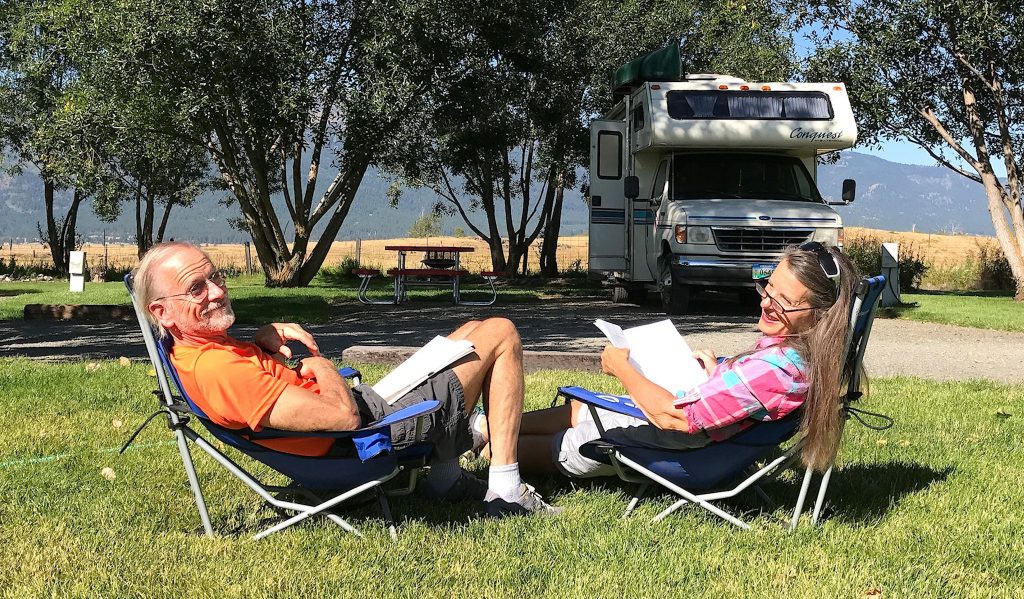
We’ve known Nancy and David since… May. Yes – this May, this year, on this trip. We were introduced to them by our friends Mark and Linda at our Lake Powell rendezvous and it seems like we’ve been friends for years. Or, as Nancy suggested, perhaps we knew each other in another life…
Eugene
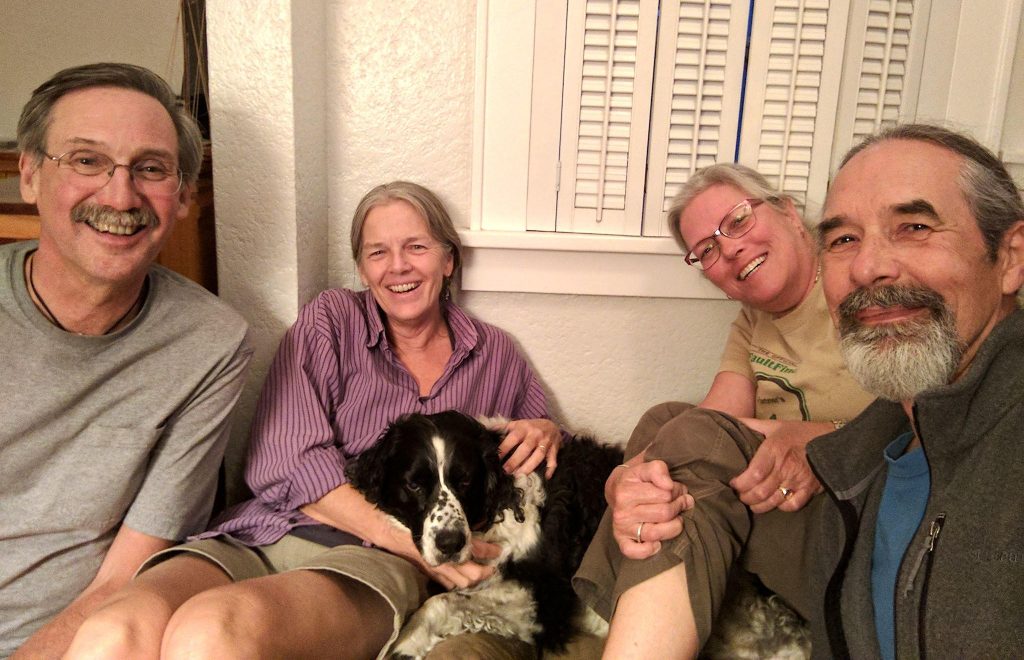
There is a certain ethereal plane of friendship where you can pick up a conversation as though you’d just left the room for a few minutes, even after a gap of several years. This is how it feels when I get back together with Dana, my roommate from college, and his wife Muffin, both of whom I’ve known for a few more than forty years.
For that reason, alone, our visit was wonderful. Food and conversation, catching up, exchanging stories, just hanging out and visiting with old friends like these were still the old times. Fantastic! I’m not going to make this post about that, though.
Olympic National Park
Tacoma – it’s not so bad!*
West coast!
Profiles of North Cascades National Park
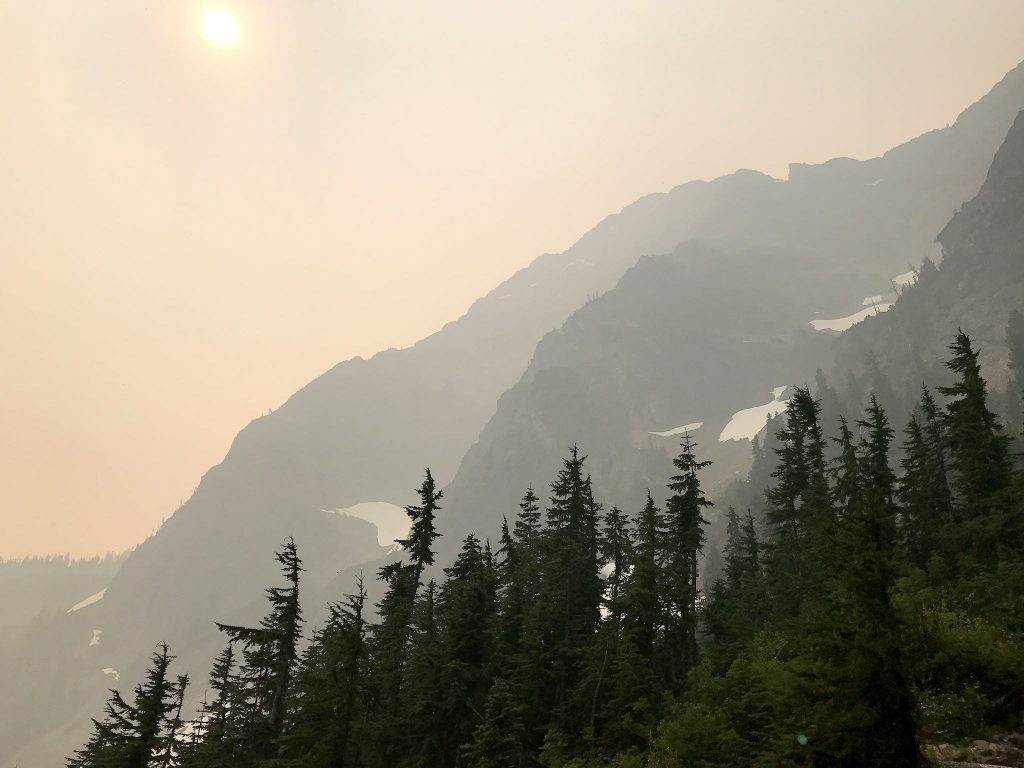
Having skirted the worst of the smoke, we entered the North Cascades National Park from the west, up wind from the nearest wildfires. Although the air quality was improved – it smelled like a 24/7 campfire but it didn’t hurt to breathe – the skies were still smoky and views obscured. Oh, and add to the wildfires a record breaking epic heat wave torturing the Pacific Northwest. We’d figure out how to turn this into an adventure…

